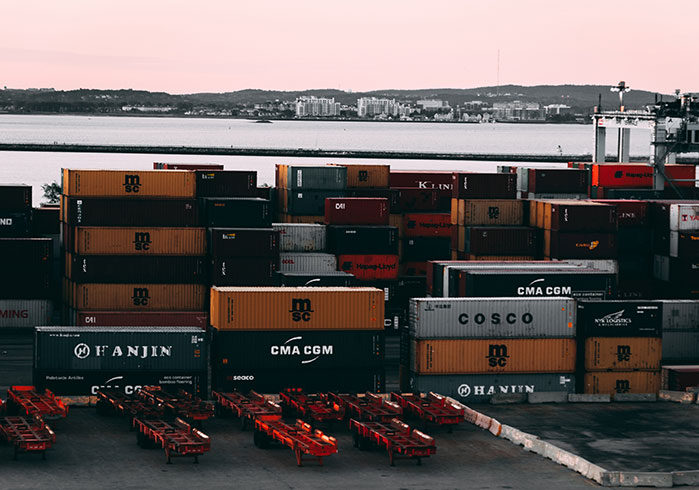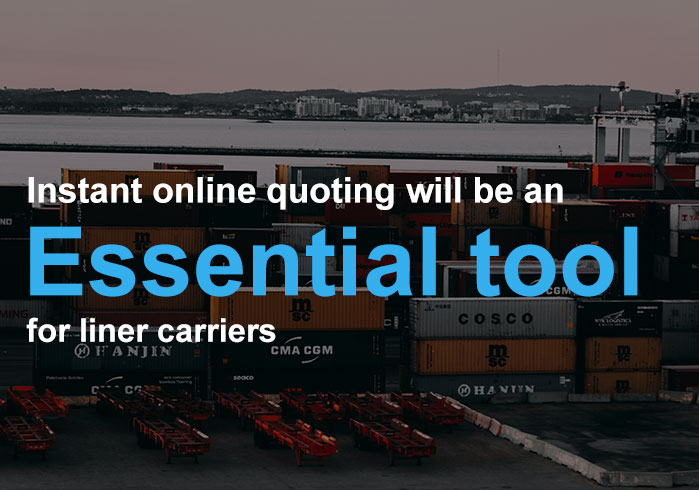
Søren Skou, the Chief Executive Officer (CEO) of Maersk, anticipates all containers may end up using digital technologies to improve their modalities for engaging with shippers. This is likely to be in the form of instant rate quotations that are done online. This need for faster processing is especially needed among the top lines in Europe.
The shift towards instant quoting
The renewed interest in the digitization of the sector was given further credence when Maersk indicated that during August 2020, about 41% of its spot bookings were arranged through the company’s online platform. The Maersk Spot Product is a digital platform that helps in managing quotations with special facilities for guaranteed spaces and also penalties for not showing up. Similarly, Maersk pays a penalty to the client shipper if the cargo is not loaded at the time that was specified in the online booking.
Skou told investors, during an earnings call held on the 19th of August 2020, that there is a lot of progress and scope for expanding the market in this way. They anticipate that eventually, all the quotation transactions will be done online. This raises questions as to how other container lines will try to catch up with this innovation. Anecdotal evidence shows that over 50% of container liners already have similar capabilities, even if they are not fully operationalized. Skou has a bold prediction:
“I think that it would be very strange if our industry would not develop in the direction that our customers buy online and then just like we do in business-to-consumer industries…and therefore, a version of [Maersk Spot] product, in my view, will be table stakes in two to three years.”
That view is consistent with sentiments expressed by the software providers that build instant quoting capability for container lines and forwarders. An example is that of Evergreen Line which has publicly declared its capabilities in this respect. Some analysts expect that there are many more Asian lines that have this capability.
Mediterranean shipping company’s new self-serve tool
The entry of the Mediterranean Shipping Company (MSC) has added momentum to this trend. MSC unveiled its instant quoting platform in July 2020. Their chief information officer Andre Simha argued that this platform increased accessibility and convenience for customers. This is considered one of the many steps that are part of the revolution in the way that quotes are provided and followed upon.
MSC does not anticipate a rapid wholesale migration of spot volume to the instant quoting platform. This is because there remains a difference between instant quotes and dynamic pricing. In this case, the price of a slot could change continuously. Other rates are more stable than others, which the provider has to take into consideration when adopting these online platforms.
The big picture
In a more dynamic market, aggregators provide instant and accurate information to make decisions. That’s where MSC’s product diverges from Maersk Spot, where an instant quote expires in 20 minutes. Simha noted that:
“It’s like a product that you buy online that there’s no differentiation on the price,” Skou said on the earnings call…but the price changes, so to speak, all the time. It’s being priced with the help of algorithms. And of course, we’re looking at the uptake curve. It’s very similar to how it works for airlines and the price-setting for airline tickets.”
The German line Hapag-Lloyd was first to market with an instant quoting tool called Quick Quotes. Their Chief Digital Officer, Ralf Belusa, noted that such tools are all about ease of doing business. This involves providing value for customers with the right product at the right price. The introduction of self-serve tools adds a new level of functionality to the already advanced developments in the industry.
Implications for the shipping industry
Container lines must use this pricing technology to allow customers to browse, identify, and confirm bookings. This creates a multi-sided marketplace that accommodates both online and offline transactions. Alibaba, for instance, has already integrated Freightos’ freight rate marketplace into its platform. Indeed, many logistics technology experts expect e-commerce platforms such as Shopify to similarly interface with providers of ocean capacity.
The COVID-19 pandemic has been a catalyst for some of this change as many people are now considering the option of working from home. This has meant that a lot of the decision-making that takes place in the commercial world is remote-based and makes use of browsers. Nevertheless, industry players such as Skou on behalf of Maersk argue that this is not just a passing phase but one that has long term implications for the industry.
“It’s possible that there has been a bit of, if you will, flight to safety that has benefited us…but we are 100 percent convinced that the ease of use of the product is such that the uptake is driven by this just being a good product and that we will continue to see growth in the usage of that product.”
Wrapping up
The shipping industry has already been gravitating towards more use of online quoting tools. These allow for remote working and are also a convenient option for customers that may not want to make bookings in person. The realities of the COVID-19 pandemic have added momentum to this movement since a lot of decision-making and even operational activities are now being done remotely.
The fact that many lines already have this capacity means that they can easily transition to the new remote system as and when required. Other benefits might accrue such as the management of costs in an era where competition is very high. These online tools also allow the lines to capture transaction data in a structured way that can aid future decision-making. Such decisions may include the management of capacity as well as the deployment of particular fleets to high demand areas.




